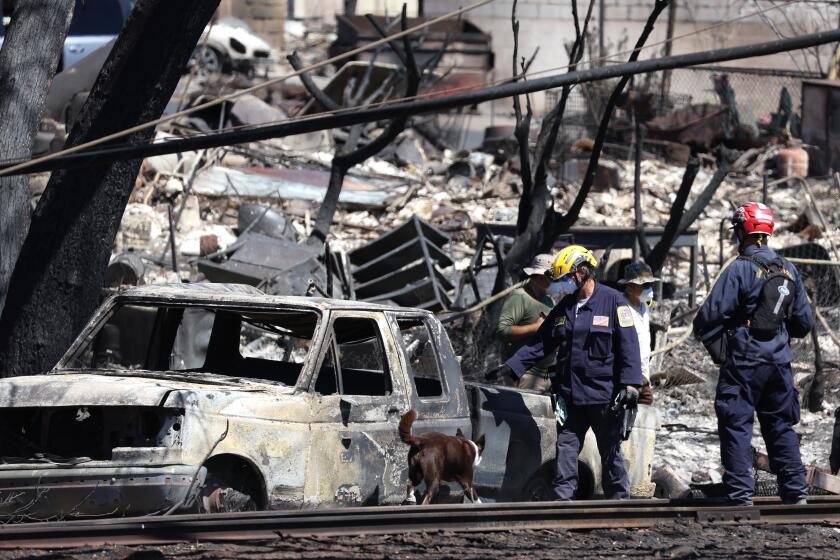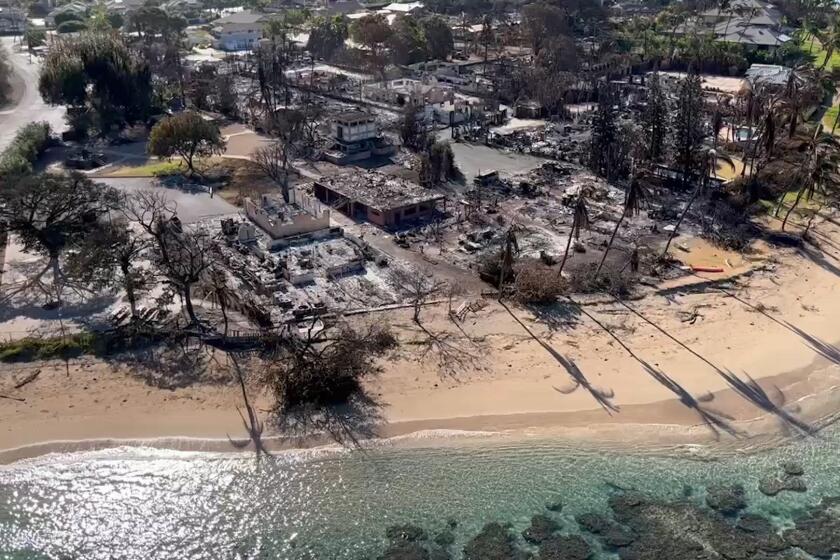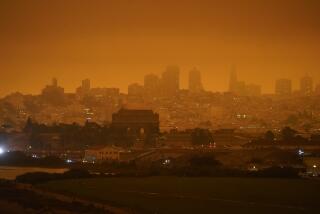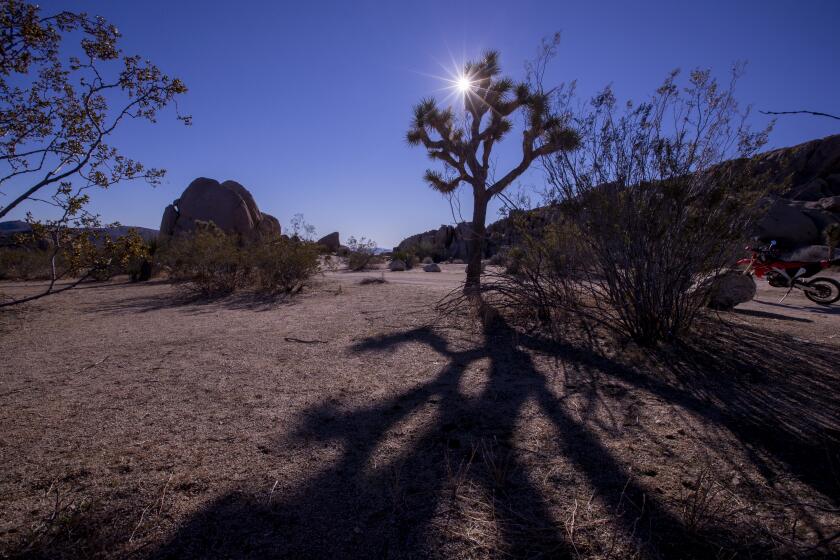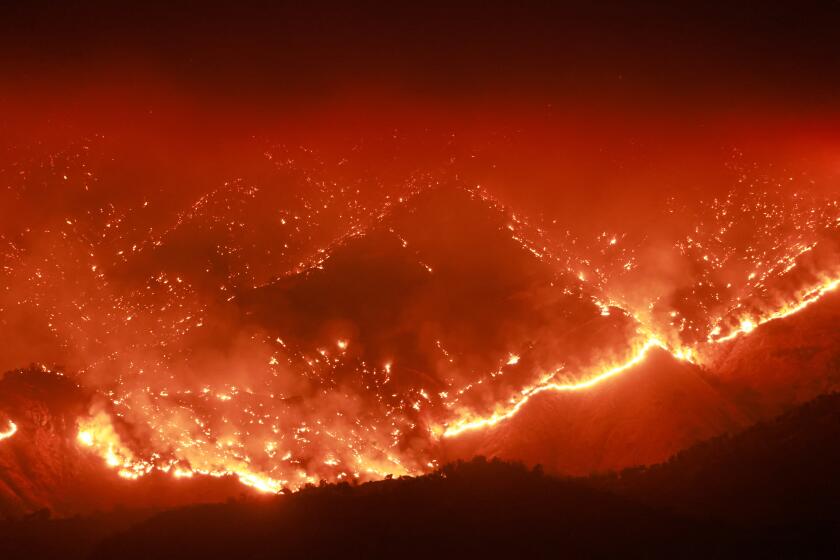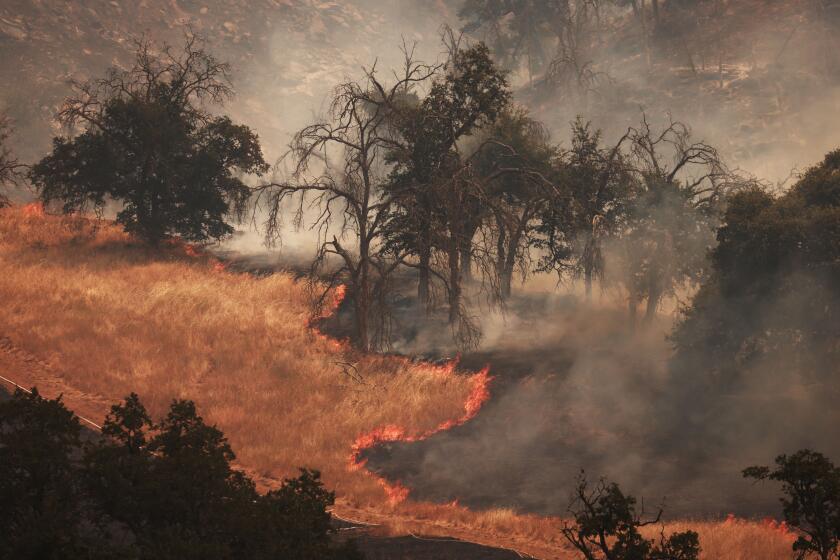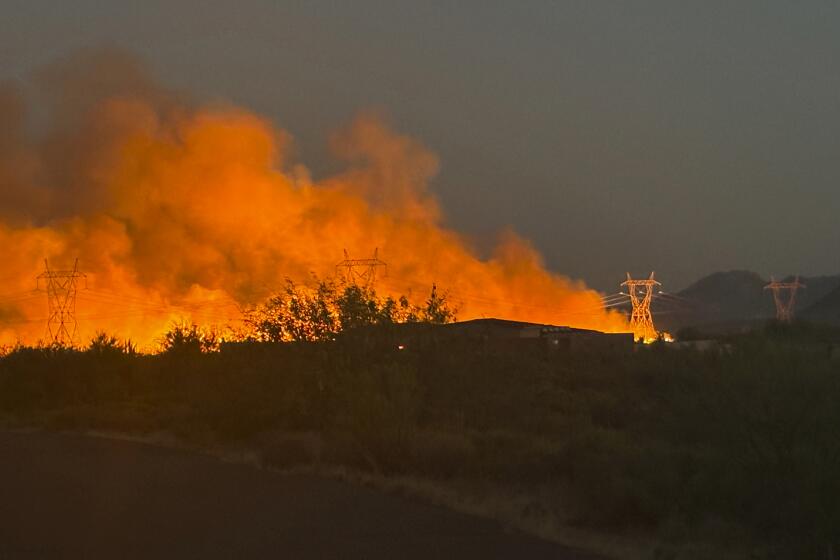Hawaii study shows almost 75% of Maui wildfire survey participants have respiratory issues
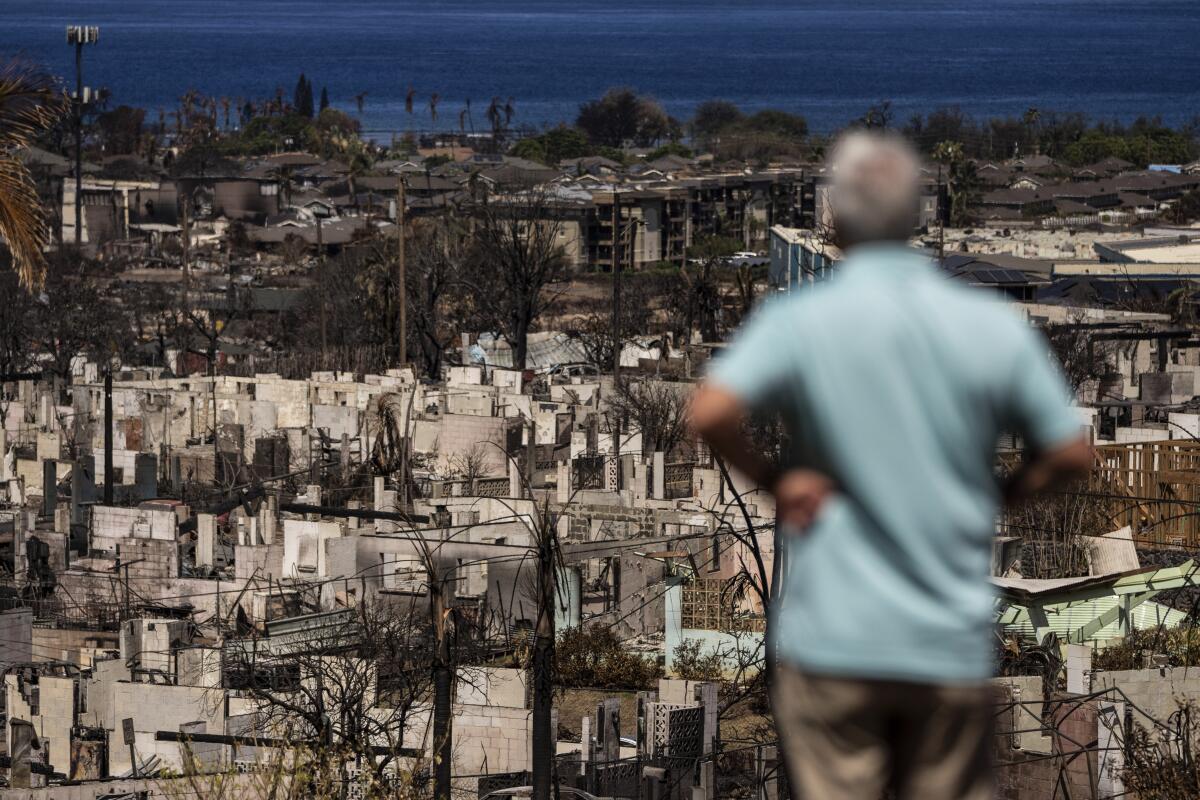
A University of Hawaii study examining the health effects of last year’s deadly wildfires on Maui found that up to 74% of participants may have difficulty breathing and otherwise have poor respiratory health, and almost half showed signs of compromised lung function.
The data, gathered from 679 people from the Lahaina and Kula areas in January and February, comes from what researchers hope will be a long-term study of wildfire survivors lasting at least a decade. Researchers released early results from that study Wednesday. They hope to eventually enroll 2,000 people in their study to generate what they call a snapshot of the estimated 10,000 people affected by the fires.
Dr. Alika Maunakea, one of the researchers and a professor at the university’s John A. Burns School of Medicine, said those who reported higher exposure to the wildfires tended to have more symptoms.
Many study participants hadn’t seen a doctor, he said. Some study participants said they weren’t able to because clinics had burned down or because they prioritized getting housing, jobs and food after the disaster. Maunakea urged people exposed to the fires to get checked.
“There might be some problems that might manifest in the future,” he said. “Please see your doctor. Just pay more attention to your health because of this.”
California’s bone hunters, forensic experts who are veterans of disaster, sift through Maui’s burn fields for the missing dead. ‘We owe it to the families.’
Two-thirds of study participants lived in Lahaina at the time of the fires. About half of the participants reported daily or weekly exposure to smoke, ash or debris.
The Aug. 8 blaze killed at least 101 people, making it the deadliest wildfire in the U.S. in more than a century. It burned thousands of buildings, displaced 12,000 residents and destroyed the historic town of Lahaina.
The report shows Maui doesn’t have enough pulmonary health specialists to care for those who will need this expertise, said Ruben Juarez, a professor of health economics at the university and one of the study’s leaders. Researchers are talking with Hawaii’s congressional delegation to figure out how to bring these resources to Maui, he said.
Maunakea said researchers want to avoid the higher cancer and death rates experienced years later by people affected by the Sept. 11, 2001, attacks in New York City.
“We’ll hopefully be able to prevent this tragedy from compounding to higher mortality rates in the future, like we saw with other events like 9/11,” Maunakea said.
A Maui tourist hub looks like a wasteland, with homes and entire blocks reduced to ashes in one of the deadliest U.S. blazes in recent years.
Dr. Gopal Allada, an associate professor of medicine specializing in pulmonary and critical care at the Oregon Health & Science University who wasn’t involved in the research, said it would have been preferable if the study participants had undergone similar lung function tests before the fire. But he acknowledged that wasn’t possible, as is often the case in similar studies.
He hopes the researchers will get funding to continue their research over time.
Allada noted most scientific studies on the health effects of wildfires have focused on what happens to people in the days and the week of exposure and less is known about the long-term effects.
He commended the researchers for showing there’s a problem and for collecting data that can influence policymakers.
“This is important work that hopefully influences policymakers and people who control budgets and where trainees train and that sort of thing,” he said.
McAvoy writes for the Associated Press.
More to Read
Start your day right
Sign up for Essential California for news, features and recommendations from the L.A. Times and beyond in your inbox six days a week.
You may occasionally receive promotional content from the Los Angeles Times.
